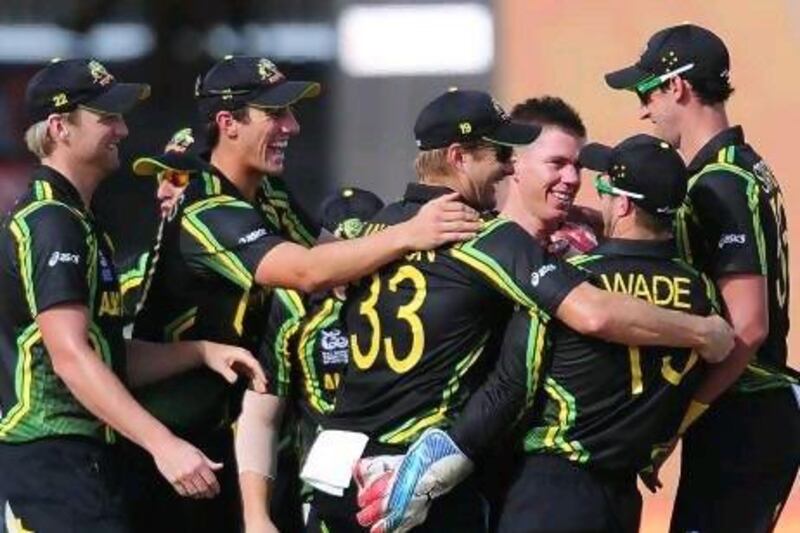Had it tried to, the ICC could not have come up with better scenarios for the last set of games in either of the two groups of the Super Eights.
Theoretically, every one of the eight teams still had a chance to make the semi-finals before they began their last games; only the degrees of possibilities differ.
In Colombo's Group 2 for example, Australia stand on the verge of the semi-finals. They would have to lose heavily to Pakistan in the first game and for India to win heavily against South Africa to not make it.
It is not likely but there is a possibility. If it were to happen it would be further proof of just how thin a thread sides walk on in tournament play such as this.
But it will also be sweet confirmation that no side really has been able to crack the code at Twenty20 level. Perhaps it cannot be.
Just a few weeks ago, for instance, Australia arrived in the UAE second favourites in a bilateral series, let alone this tournament.
And after losing that to Pakistan, they looked even less likely to do well here. Yet they won the last game of that series and have romped to four more in a row since.
But who is to say that tomorrow they will win one more, especially against Saeed Ajmal, who has taken 15 cheap wickets against them in just nine T20s?
"I don't know if you can really decode him," Australia's captain George Bailey said. "It's a real challenge. No doubt he is going to be the key throughout the rest of the tournament and probably more and more so. We have got some thoughts and some ideas but he is going to be a challenge I'm sure."
Pakistan, on the other hand, were looking pretty good until the India defeat. Suddenly, they are now like that boxer whose glass chin has just been discovered. They looked favourites against Australia weeks ago. They don't now.
The mood of their coach Dav Whatmore was heavy following defeat to India (although he did joke that they may poison Shane Watson's food to stop him).
"Sometimes its good to get back on the horse that bucks you off quickly so we only get a day, that's a good thing for us," Whatmore said. "We had some reasonable performances against Australia but they've played very well in the last three weeks so far. We're used to playing them because we've done OK against them recently."
Given the Indian Premier League, you would think India would be better at this format, but the win over Pakistan was their first at the Super Eights stage since their 2007 world triumph.
But they have oscillated between very good and very bad in Colombo, MS Dhoni capturing the truly fickle nature of the format better than others.
"It doesn't look like there is a lot of momentum," he said. "You go day by day, you look at the nature of wickets, some suit you, some don't but it's important to get a bad defeat out of your system."
Playing the second game, they at least will know precisely what they need to do against South Africa to go through. But finally, it says as much as is needed to be said about the format that the side that came in top-ranked here is the one that has lost both their games so far but still has a fair chance of making it to the semi-finals.
South Africa's batting has been poor, but a loss for Pakistan and a win over India – and not a necessarily heavy one – will see them through.
"We need to make good decisions," Gary Kirsten, the South Africa coach, said. "In both the games we were trying to win the games and then we let it slip.
"I think when we left the shores and the South African team was announced, everyone said it is a well-balanced team and that it's a good team and that it has a good chance of winning this event. But we haven't played well enough in the key moments of the game.
"It has been disappointing. I think we made a lot of progress. We had tough batting situations in which we lost three wickets early but in both those games we batted deep to get to a good competitive total.
"It is a bit disappointing that we had opportunities to close a game out and we didn't do that."
Follow us
[ @SprtNationalUAE ]





